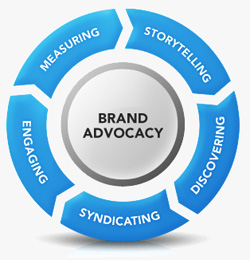Tech Tonics: Tele-behavioral Health – Breaking Down Barriers and Stigmas at a Time of Escalating Need
For 20 years, advocates of telemedicine have been trying to break through to common usage. For all of modern human history, those with mental health challenges have held back from seeking treatment due to the stigma associated with doing so. And then, a Chinese bat opened the flood gates. Today we are seeing record usage of telemedicine, especially for mental health needs of all types.
Regular Tech Tonics listeners know our usual approach is in-depth personal interviews with individuals. Today, in light of current events, we decided to take a topical detour into how the coronavirus pandemic has driven vast advances in the use of telemedicine and has brought out into the open the importance of access to mental health treatment. The combination of these things into what we know now as tele-behavioral health, is our topic today. We invited three tele-behavioral health experts serving different populations to join the show and share with us what they are seeing in the new world order; those people are:
- Russell Glass, CEO of Ginger
- Margaret Laws, co-founder of Nod (and CEO of HopeLab)
- Steve Smith, CEO of NOCD
Notably, all three of these organizations are experiencing skyrocketing use of their tele-behavioral health products and have seen some surprising customers enter their system. Interestingly, the pandemic has driven a stunning rise in telemedicine, but also a much greater openness to discussing and acting on the need for mental health care. Un-hampered by lack of reimbursement or physician/provider reluctance, these companies’ digital approaches are gaining in popularity in a way that may be persistent post-crisis. And not only are patients enjoying their experiences; they consistently report that access challenges have been markedly reduced as compared to the pre-pandemic era. Imagine that.
Never has the need for mental health care been more acute. The Kaiser Family Foundation notes that “More than four in ten adults overall (45%) feel that worry and stress related to coronavirus has had a negative impact on their mental health, up from 32% in early March.” If one needed more proof of the mental health crisis we are facing, prescriptions per week for antidepressants, anti-anxiety and anti-insomnia drugs increased by 21% between February 16 and March 15, peaking the week of March 15 when the virus was deemed a pandemic. The largest increase was in anti-anxiety medications, according to the report, which rose by 34.1% over that month, in contrast to double digit drops in the use of some of these medications over the previous five years, according to this Fierce Healthcare article.
We are grateful to our guests for their willingness to do the show and even more so for their commitment tackling the issues that are plaguing so many people today. Whether you are an adult, a child, a teen; whether you are someone with serious mental health issues or more common ones; whether you are alone, with your family, or in any other situation, know that there is help out there for you – you can access mental health services 24-hours a day by telemedicine by accessing these three companies and many others.
We are grateful to Manatt Health for sponsoring today’s episode of Tech Tonics—Manatt Health is a multi-disciplinary professional services firm that integrates a full-service law firm with a broad-based strategic business and policy consulting practice to help our clients grow and prosper. Manatt Health supports the full range of stakeholders in transforming America’s healthcare system.
Show Notes:
Kaiser Family Foundation report on coronavirus impact on mental health
Press Release about Free Access to Mental Health Coaching during the Pandemic
https://abcnews.go.com/US/living-ocd-pandemic/story?id=70237405
Lisa’s article on the dramatic rise in digital health as a result of the pandemic.
David’s interview in Timmerman Report with his brother, Jonathan, a psychiatrist in L.A. who was an early adopter of telemedicine. Jonathan discusses his first-hand experiences adjusting to this technology.
Posted in:
Audio Podcast, Healthcare, Tech Tonics, Technology


